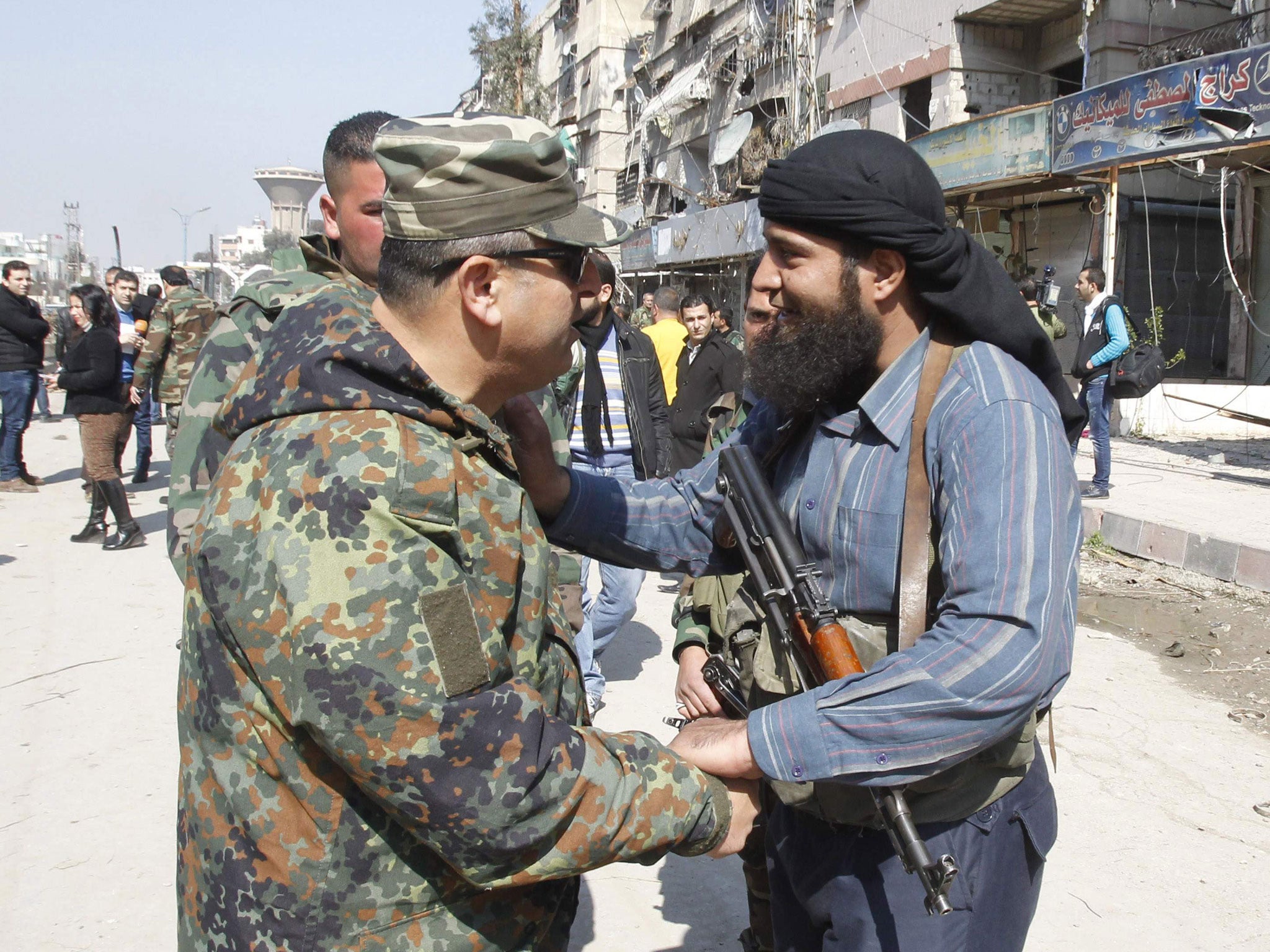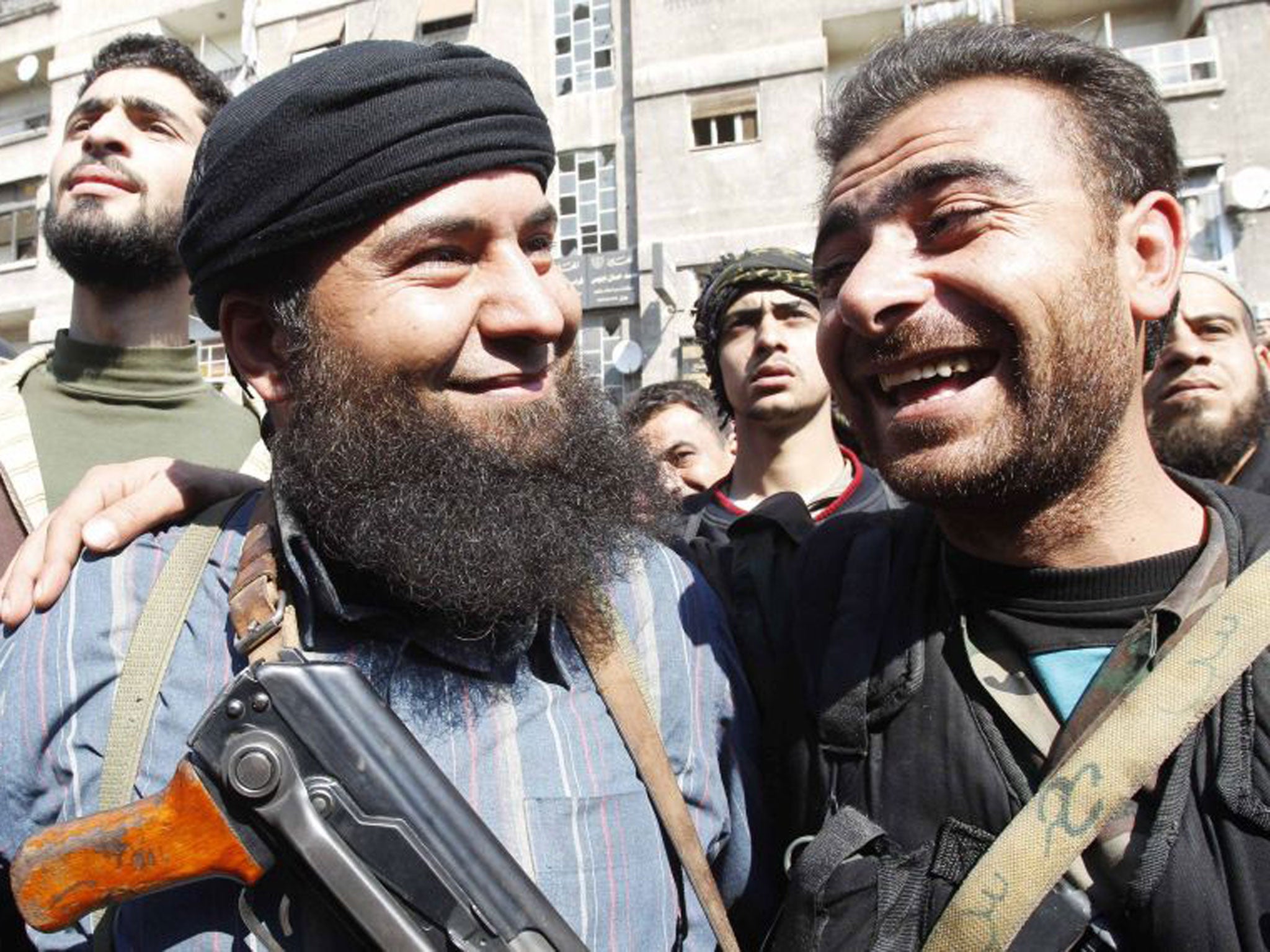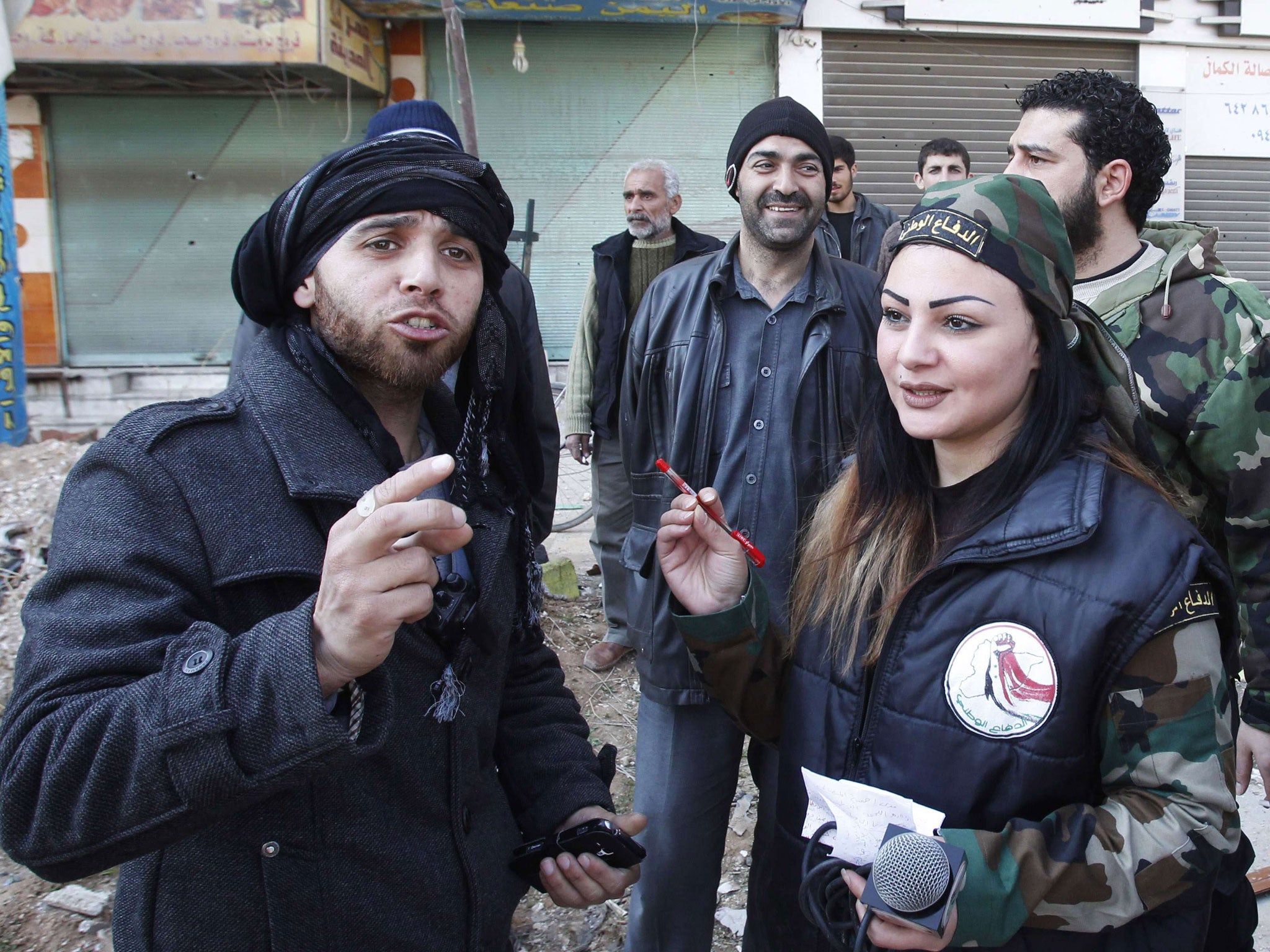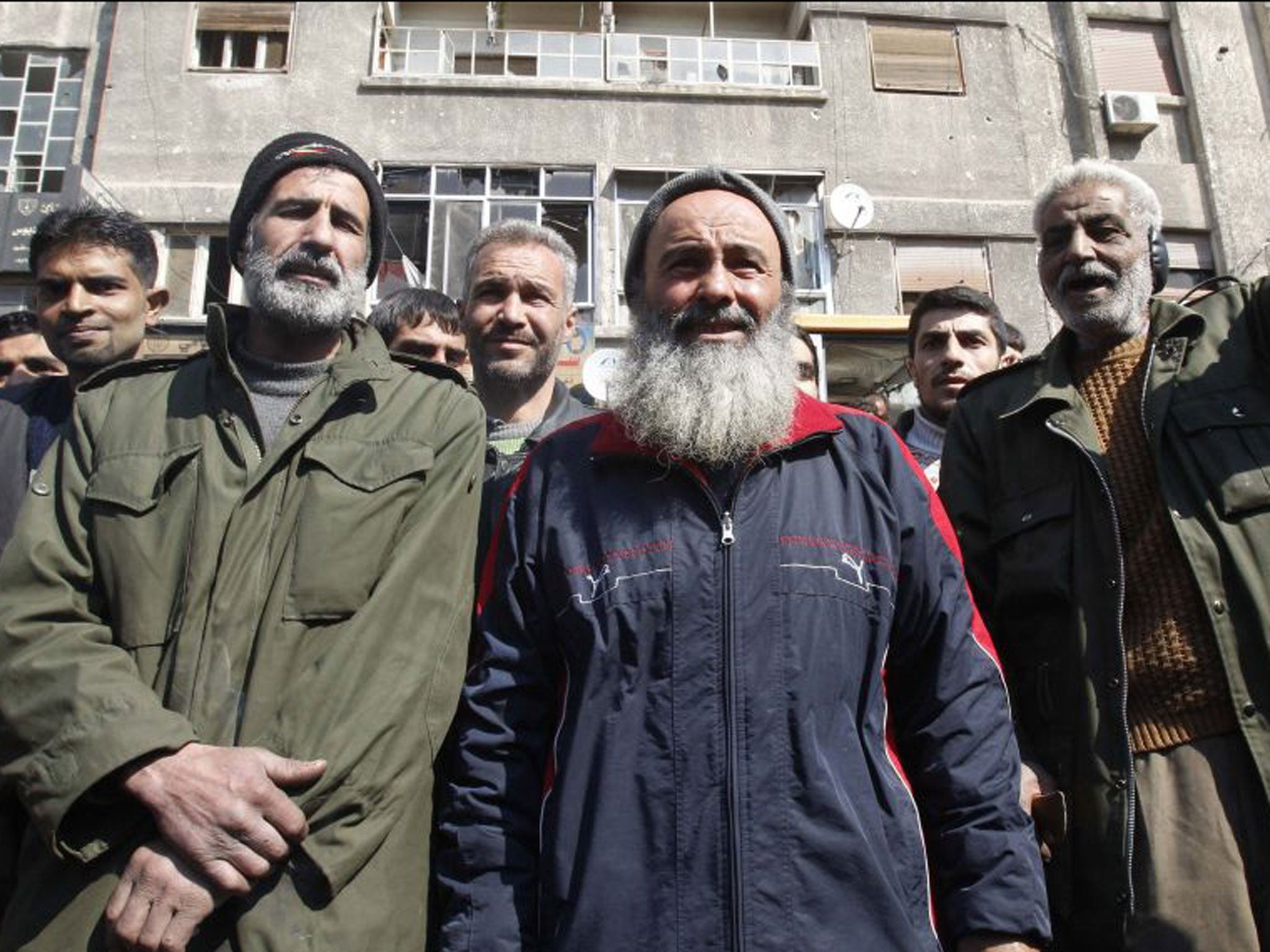Syria conflict: Enemies cross the front lines in Damascus. But will the truce hold?

Your support helps us to tell the story
From reproductive rights to climate change to Big Tech, The Independent is on the ground when the story is developing. Whether it's investigating the financials of Elon Musk's pro-Trump PAC or producing our latest documentary, 'The A Word', which shines a light on the American women fighting for reproductive rights, we know how important it is to parse out the facts from the messaging.
At such a critical moment in US history, we need reporters on the ground. Your donation allows us to keep sending journalists to speak to both sides of the story.
The Independent is trusted by Americans across the entire political spectrum. And unlike many other quality news outlets, we choose not to lock Americans out of our reporting and analysis with paywalls. We believe quality journalism should be available to everyone, paid for by those who can afford it.
Your support makes all the difference.It is a surprising sight but one that may become more common in Damascus. Under the terms of a local ceasefire in the outlying district of Babbila in the south of the capital, armed members of the rebel Free Syrian Army mingle with Syrian soldiers and appear on friendly terms. The images show fighters from both sides talking and joking together.
Residents of the neighbourhood were said to be “overjoyed” by the truce. According to the AFP news agency, a group began chanting: “One, one, one! The Syrian people are one!”
The inside of the district, long under siege and bombarded by the army, will be policed by the FSA. Inhabitants who appear on the streets look overjoyed that for the moment the danger is over.
The terms of the truce in Babbila, assuming it is similar to that negotiated in other former rebel strongholds like Barzeh and Muadamiyat, provide for the FSA to hand over heavy weapons, but its fighters will stay in Babbila or can join the army. There will be a mixed FSA/army checkpoint at the entrance to Babbila and the army will not enter the district where the FSA will retain some of its positions in case the truce is broken. The government guarantees a rebuilding programme.

The main street is full of half-ruined buildings hit by artillery, but the government agrees to reconnect the water and electricity supply and reopen roads.
How far are these ceasefires and truces the shape of things to come? There are some aspects of these agreements that are very important, such as the release of prisoners in Barzeh, which late last month the local FSA commander told The Independent the government had not complied with. In most of these areas the majority of the people fled the shelling long ago and are likely to return to find their houses in ruins. It is not clear how far they will be compensated.

The government’s main strategy in dealing with rebel-held areas in Damascus has been to surround them with checkpoints, cut off water and electricity and bombard them. They have not, except when they are close to strategic roads, sent in ground troops to storm them; that would lead to casualties that government forces can ill-afford. Local people are weary and generally eager to see an end to the fighting.

The truces are taking places in the smaller and more isolated rebel enclaves. Bigger ones, like Eastern Ghouta, with a present population estimated by the UN to number 145,000, are more likely to continue to resist because the rebel fighters may be hardcore Islamists such as al-Qa’ida-linked Jabhat al-Nusra. Bigger areas are also more likely to have better supplies of food and are more difficult to isolate effectively.
Subscribe to Independent Premium to bookmark this article
Want to bookmark your favourite articles and stories to read or reference later? Start your Independent Premium subscription today.
Join our commenting forum
Join thought-provoking conversations, follow other Independent readers and see their replies
Comments